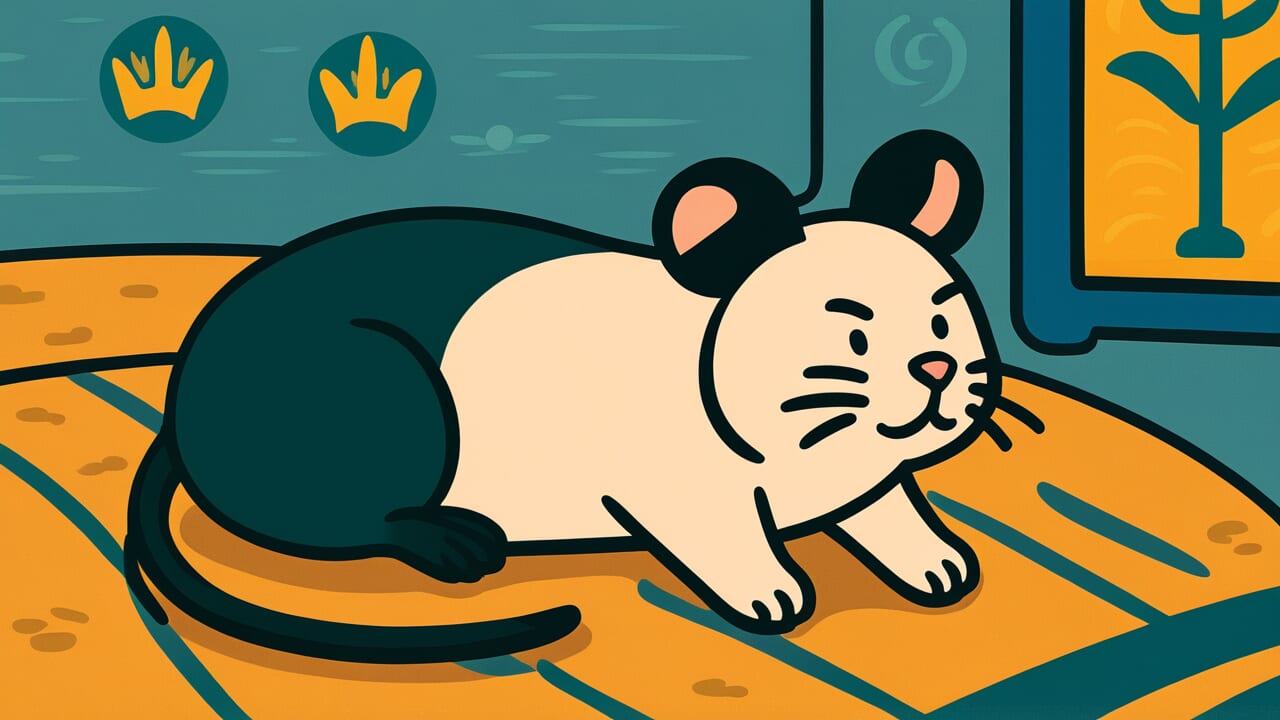How to Read “A mouse napping in front of a cat”
Neko no mae no nezumi no hirune
Meaning of “A mouse napping in front of a cat”
This proverb describes someone who relaxes without noticing imminent danger. It paints an impossible picture: a mouse taking a nap while its natural enemy, a cat, sits right in front of it.
People use this saying when someone faces an obvious crisis but doesn’t realize it or take it seriously.
For example, it fits a student who keeps playing games when exams are just days away. It also describes a business owner who ignores warning signs of financial trouble.
The expression works so well because everyone understands the cat-mouse relationship. Cats hunt mice. This makes the danger crystal clear.
Even today, this proverb warns people who underestimate risks in front of them. It criticizes those who stay too optimistic when facing serious problems.
Origin and Etymology
No one knows exactly when this proverb first appeared in writing. However, its meaning comes through immediately because of its simple structure.
Cats have been known as mouse hunters since ancient times. For mice, cats represent a life-threatening danger.
During the Edo period, ordinary people saw cats and mice interact every day. Families kept cats to protect their grain from mice.
Watching cats chase mice around the house was a common sight. Everyone understood this natural order of predator and prey.
A mouse napping in front of a cat would never happen in real life. Such behavior would lead to instant death.
The expression likely came from these daily observations. People learned about crisis management by watching cats and mice.
The proverb became a warning against foolishness. It teaches that ignoring obvious danger while relaxing carelessly leads to disaster.
The phrase creates a vivid mental picture. Anyone who hears it once understands its meaning immediately.
This proverb captures folk wisdom in a compact form. It shows how lack of awareness can be deadly.
Usage Examples
- Our rival company is launching a new product, but we haven’t prepared anything. This is exactly like a mouse napping in front of a cat.
- The deadline is in two days and you haven’t started? That’s a mouse napping in front of a cat if I ever saw one.
Universal Wisdom
This proverb reveals deep insight about human weakness in recognizing danger. Why do people overlook obvious threats right in front of them?
Humans have something called “normalcy bias.” We unconsciously downplay bad information. We think “It’ll be fine” or “It won’t happen to me.”
This mental mechanism helps reduce daily stress. But when real danger approaches, it can be fatal.
People also tend to prioritize immediate comfort. For the mouse, napping feels good and relaxing.
But by giving in to that comfort, the mouse misses the bigger danger. Modern people do the same thing.
We chase short-term pleasures and profits while ignoring long-term risks.
Our ancestors expressed this human weakness through the familiar relationship between cats and mice.
This proverb has survived through generations because this fundamental flaw in human nature never changes. Times change, but people don’t.
When AI Hears This
Game theory assumes players predict each other’s actions and make optimal choices. But this proverb shows when that assumption collapses.
The mouse chooses to nap because it misses critical information about the cat’s presence. Or it wrongly believes the cat is sleeping.
The mouse thinks it’s playing a “safe environment” game. In reality, it’s playing a “life or death chase” game.
Numbers make this situation clearer. Say napping gives the mouse 10 points of benefit. Getting caught costs minus 100 points.
If the mouse wrongly thinks there’s a 99 percent chance no cat is there, the expected value is about 9. Napping seems rational.
But if the actual probability is 50 percent, the expected value becomes minus 40. A small error in probability completely reverses the right choice.
The real world repeats this same pattern. During the 2008 financial crisis, many investors estimated housing price drop risk at under 1 percent.
Prices actually fell over 30 percent. The market collapsed.
Companies launching new businesses face similar results when they misjudge how fast competitors will react.
The real danger of information asymmetry is this: choices based on wrong information can look perfectly rational.
The mouse isn’t stupid. Within its limited information, it’s making the best decision possible.
Lessons for Today
This proverb teaches modern people an important truth. Hidden crises often lurk within peaceful daily life.
In our busy routines, we easily miss important warning signs.
The key is developing a habit of objectively reviewing your situation regularly. Is there a “cat” near you right now?
Do you have problems you’re ignoring? Tasks you keep postponing? Warnings you’re dismissing?
These will eventually catch up with you.
But this lesson isn’t meant to spread fear. Rather, it carries a message of hope.
If you notice early and act early, you can avoid most crises.
If the mouse stops napping and runs away, it survives. You can do the same starting today.
Look at the risks in front of you. Take one small step forward.
Staying alert isn’t about living in fear. It’s wisdom that helps you live with greater peace of mind.



Comments